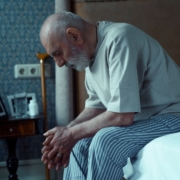Helpful Ways for Seniors to Combat Loneliness During the Holidays
The holiday season is often seen as a time of joy and togetherness. However, for many seniors, this time of year can bring feelings of loneliness and isolation. Whether due to distance from family, the loss of loved ones, or changes in health, the holidays can be a tough time. But there are ways to help handle these feelings and make the season special. Here, we’ll share easy tips that seniors can use to feel more connected and supported during the holidays.
Why Seniors Experience Loneliness During the Holidays
Loneliness around the holidays is common among seniors for several reasons. Many older adults live alone, which makes it harder to join in traditional celebrations. Some may find that physical or health challenges, such as mobility issues, keep them from attending holiday events. Others may feel sadness reflecting on loved ones who have passed away or moved far away. Without a strong sense of connection, the holidays can become more of a reminder of what’s missing than a time for celebration.
By understanding these challenges, seniors, caregivers, and families can work together to find solutions that bring joy back into the season.
Building Connections Through Community
One of the best ways for seniors to combat loneliness is by staying active in their communities. Participating in local events can provide social interaction and a sense of purpose. Here are some ideas to consider:
Attend Community Events
Many towns and cities hold free or low-cost holiday events, like concerts, tree-lighting ceremonies, or craft fairs. Seniors can check their local community center, library, or church for upcoming activities. Not only do these events create opportunities to meet others, but they also provide a festive atmosphere that can lift spirits.
Volunteer Time
Helping others is a powerful way to feel connected. Volunteering at soup kitchens, food drives, or holiday events can give seniors a sense of belonging and accomplishment. It’s also a great way to meet people who share similar values.
Join Clubs or Groups
Many community centers offer clubs or activities tailored to seniors. Groups focused on hobbies like knitting, gardening, or reading can provide a low-pressure way to build friendships and enjoy shared interests.
Staying Connected Virtually
For some seniors, traveling or attending in-person events isn’t possible. Still, technology offers wonderful alternatives to stay connected during the holidays. Virtual gatherings and communication tools can bridge the distance between loved ones.
Schedule Video Calls
Platforms like Zoom, Skype, or FaceTime allow families to connect face-to-face, even from afar. Seniors can schedule virtual dinners, game nights, or simply chat with loved ones as if they were in the same room.
Join Online Groups
Seniors can find online communities based on their interests or hobbies. Whether it’s a book club or a health-focused group, these virtual spaces can provide a feeling of belonging. Many organizations, including senior care programs, offer virtual sessions like yoga classes or workshops to keep people engaged.
Send Digital Greetings
If video chats feel overwhelming, sending e-cards, emails, or messages can still show loved ones they’re in your thoughts. A simple effort can go a long way in strengthening connections.
Rediscover Holiday Traditions
Sometimes, all it takes to brighten the holidays is rekindling old traditions—or even creating new ones! By focusing on meaningful activities, seniors can replace feelings of loneliness with joy.
Decorate Your Space
Even if a big celebration isn’t in the plans, seniors can decorate their homes to bring some holiday cheer indoors. Stringing lights, hanging wreaths, or putting up a small tree can make a house feel warm and festive.
Cook Seasonal Favorites
Cooking or baking favorite holiday dishes, even if only for yourself, can spark positive memories. For an extra dose of connection, seniors can invite friends or neighbors to join them for a meal.
Watch Holiday Movies
There’s a reason holiday movies are so loved—they never fail to warm the heart! Seniors can host a movie night or settle in with a cup of hot cocoa to enjoy classic holiday movies or festive comedies.
Lean on Support Systems
Sometimes, it takes a community effort to help seniors thrive during the holidays. Family members, friends, and caregivers can all play a role in making sure no one feels left out.
Ask for Help
It’s important for seniors to remember that it’s okay to reach out for help. Loved ones may not always know when someone is feeling down. Simply letting others know how you’re feeling can open the door to support.
Caregiver Assistance
For seniors receiving senior care or healthcare services, caregivers can be a valuable resource. Many caregivers are trained to provide emotional support, encourage social activities, and help seniors maintain a healthy holiday routine.
Consider Counseling
If feelings of loneliness become overwhelming, speaking to a counselor or therapist might help. Many professionals specialize in working with seniors to address issues like depression or grief during the holiday season.
Take Care of Yourself
Physical and mental health are closely linked, so staying well can often improve emotional well-being. Seniors should focus on small steps to maintain health during the busy holiday season.
Stay Active
Light exercise, like walking or stretching, can boost energy and improve mood. There are even gentle holiday-themed fitness classes for seniors, such as chair yoga or dancing to holiday music.
Eat Well
While it’s tempting to indulge in holiday treats, it’s important to balance them with nutritious meals. Eating fruits, vegetables, and other healthy options can help maintain energy levels.
Rest and Recharge
The holidays can be tiring for everyone, especially seniors. Getting enough sleep and taking time to relax is essential for both physical and emotional health.
Wrap-Up
Loneliness during the holidays is a common challenge for many seniors, but it doesn’t have to define the season. By staying connected, rediscovering traditions, and leaning on support systems, seniors can create a joyful and meaningful holiday experience. Whether through community involvement, virtual gatherings, or simply reaching out to loved ones, there are countless ways to find connection and warmth this holiday season.
If you’re a senior or a caregiver, remember that even small steps can make a big difference. The holidays are about togetherness—and with the right strategies, that sense of belonging is within reach.
It’s your life. Live it your way.
WelbeHealth provides full-service healthcare and personalized support to help you age well at home and in your community. Our Program of All-Inclusive Care for the Elderly (PACE) meets the changing needs of seniors, often at no cost. To see if you qualify, visit: welbehealth.com/contact







































































